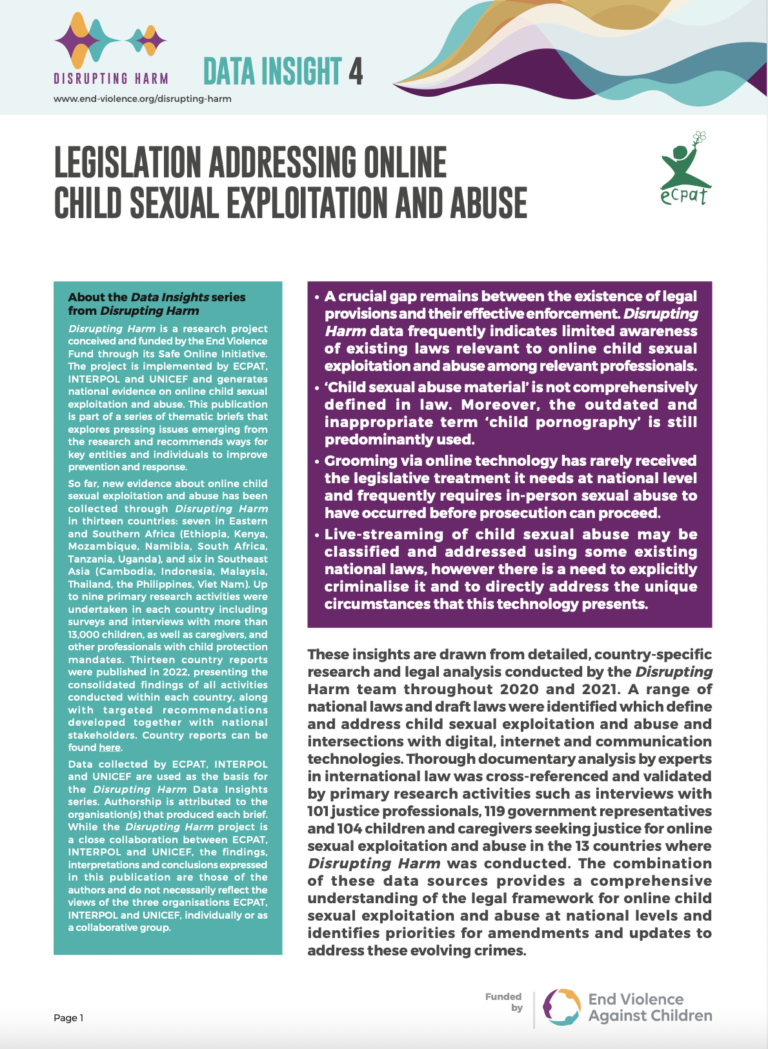These insights are drawn from detailed, country-specific research and legal analysis conducted by the Disrupting Harm team throughout 2020 and 2021. A range of national laws and draft laws were identified which define and address child sexual exploitation and abuse and intersections with digital, internet and communication technologies. Thorough documentary analysis by experts in international law was cross-referenced and validated by primary research activities such as interviews with 101 justice professionals, 119 government representatives and 104 children and caregivers seeking justice for online sexual exploitation and abuse in the 13 countries where Disrupting Harm was conducted. The combination of these data sources provides a comprehensive understanding of the legal framework for online child sexual exploitation and abuse at national levels and identifies priorities for amendments and updates to address these evolving crimes.

